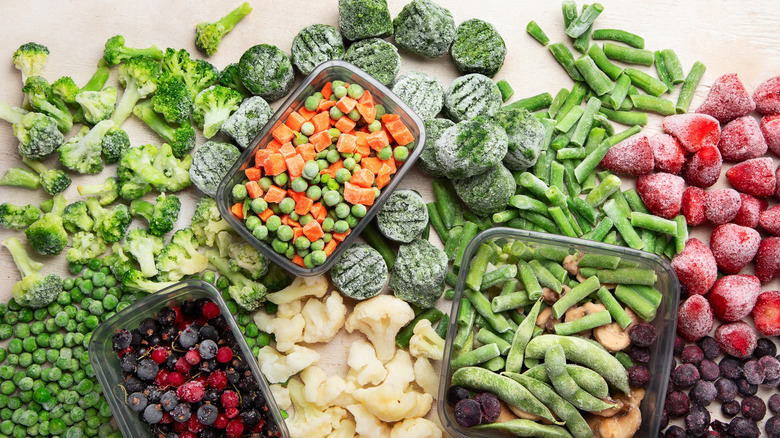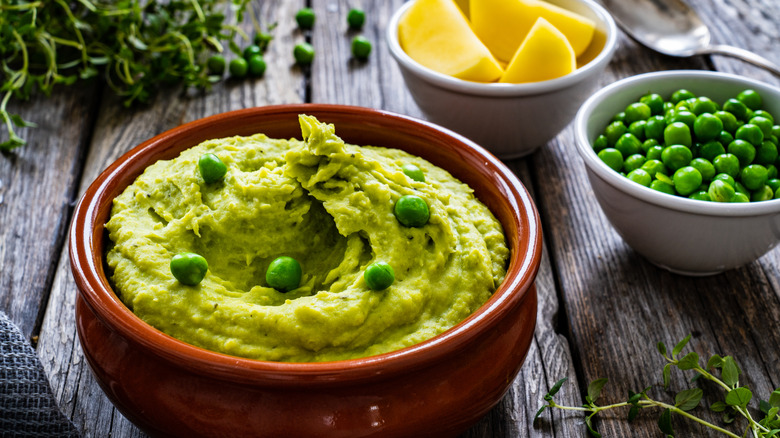The Frozen Vegetable That Packs More Protein Than Milk
Besides adding flavor and texture to a dish, most vegetables are known for their vitamins and fiber. Protein, on the other hand, is often attributed to meat, seafood, and dairy. There's one vegetable, however, that packs a protein punch even bigger than whole milk: frozen peas. One cup of green peas has 8.58 grams of protein, edging out a cup of whole milk (which contains 8.14 grams of protein per cup).
That might not sound like much, but for a plant-based ingredient, it's impressive — especially considering peas also come loaded with nearly 9 grams of fiber, along with various antioxidants like Vitamins C and E. And since frozen peas are typically picked and packaged at peak ripeness, they retain great flavor and nutritional value, not to mention their convenience. And if you're looking for a shelf-stable option, canned peas are also a great source of protein. One standard can contains 13.8 grams of protein and can last two to five years unopened, making them an easy and reliable source of plant-based protein for your pantry.
How to turn frozen peas into a protein-packed meal
It's easy to overlook small, mildly sweet peas in a dish, but their versatility can make them an effortless way to add protein to a variety of meals. Thanks to their size, frozen peas thaw quickly and require almost no prep. Just toss them into a hot pan with a splash of water to quickly steam them, then finish with butter, garlic, and your favorite spices for a flavorful and nutrient-rich side dish.
If you're not a fan of peas on their own, they're also incredibly easy to add to one-pot dinners. Stir frozen peas into pastas to make them pretty – think carbonara or primavera to sneak in protein and a pop of color, or blend them into soups with mint, a simple fresh ingredient that upgrades its flavor. You can even use them as the base of dips or spreads, similar to a protein-rich twist on hummus. To boost the protein further, consider pairing peas with other high-protein vegetables, such as spinach, collard greens, or edamame — a veggie with more protein than eggs.


